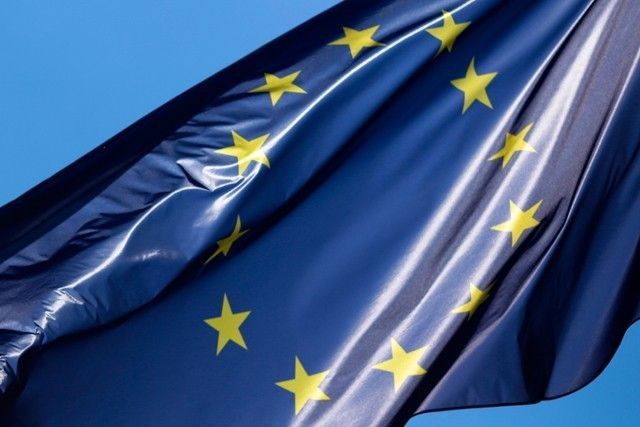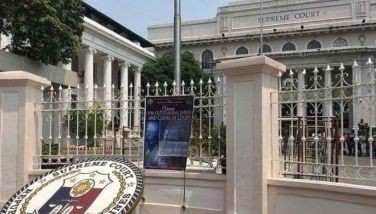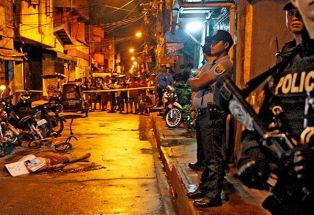EU calls on Philippines to address EJKs

MANILA, Philippines — The European Union has called on the Philippines to address extrajudicial killings and improve governance in the context of promoting human rights and holding violators accountable as part of their new Partnership and Cooperation Agreement (PCA).
The EU-Philippines PCA paved the way for last Friday’s first Sub-Committee on Good Governance, Rule of Law and Human Rights dialogue via videoconferencing, which engages both parties in various governance issues.
Among the key topics discussed in the sub-committee were strengthening accountability and investigative measures in the context of the Philippines’ anti-illegal drug campaign and the issue of the death penalty, which the regional bloc underscored it opposes in all circumstances.
The respect of human rights as laid down in the Universal Declaration of Human Rights and relevant international human rights instruments, to which the EU and its members states and the Philippines are parties, was emphasized as an essential element of the PCA.
The Sub-Committee is the formal structure to share views and concerns on those issues. Both the EU and the Philippines reaffirmed their commitment to the promotion and protection of human rights, while recognizing the need for “further action on a number of human rights issues.”
“The EU looked forward to tangible progress on human rights and stands ready to support the implementation of the Joint Programme and its objectives, notably through the GO JUST II programme,” the EU said in a statement.
Referring to the UN High Commissioner’s report, the EU called on the Philippines to address extrajudicial killings, provide remedies for victims and hold perpetrators accountable.
The Philippines stated that its domestic accountability mechanisms are functioning as efforts are being made to further strengthen national institutions and procedures in order to advance the fight against impunity. The Review Panel on cases related to the anti-illegal drug campaign had begun its important work.
“The EU looked forward to tangible progress in this connection,” the EU said.
Sen. Leila de Lima’s case was also discussed while the EU explained its new Rule of Law Mechanism addressing the rule of law situation in the EU.
Freedom of opinion and expression, media and information were discussed at length, including the cases of journalists and media workers such as Maria Ressa.
“Both the EU and the Philippines recognized their obligations to take action to respect, protect and promote these freedoms,” it said.
Acknowledging that freedom of association and assembly and an enabling civic space are crucial components of any democracy and key building blocks for the successful implementation of the 2030 Agenda, the EU and the Philippines agreed on the need to acknowledge, protect human rights defenders and enable their work in accordance with the UN Declaration on Human Rights Defenders.
The Sub-Committee also highlighted that migration is a global phenomenon that requires global solutions and global sharing of responsibility.
Noting that women and girls constitute the vast majority of victims, the EU and the Philippines expressed their joint commitment to fight against human trafficking and their readiness to strengthen cooperation in that field.
Participants noted the achievements of the Philippines in the protection of the human rights of overseas Filipino workers (OFWs) and the efforts in the fight against human trafficking.
The Philippines raised the issue of social dumping and the protection of the rights of third country au pairs in the EU.
The EU and the Philippines recalled their engagement to combat racism, racial discrimination, xenophobia and related intolerance.
The situations of racism and xenophobia in the EU and of Indigenous Peoples in the Philippines were also discussed.
The sub-committee allowed for an open and constructive exchange on good governance, rule of law and human rights issues.
“The monitoring mission under the EU’s unilateral trade preferences scheme, GSP+, scheduled for later this year, will also be a good occasion to assess progress, building on the results of this first Sub-Committee, and will provide an additional platform for continued engagement on human rights and labor rights issues between the EU and the Philippines,” the EU said.
The meeting was opened by Eamon Gilmore, EU special representative for human rights and co-chaired by Paola Pampaloni, deputy managing director for Asia and the Pacific in the European External Action Service and Jaime Victor Ledda, assistant secretary of the Office of European Affairs in the Department of Foreign Affairs.
The next sub-committee meeting is expected to take place in the Philippines during the firstsemester of 2022.
- Latest
- Trending



























